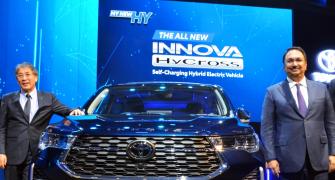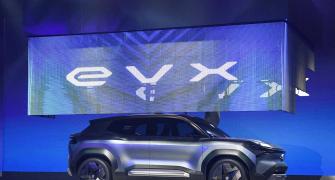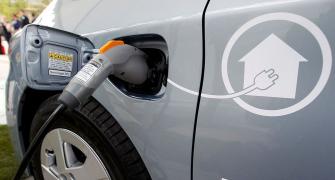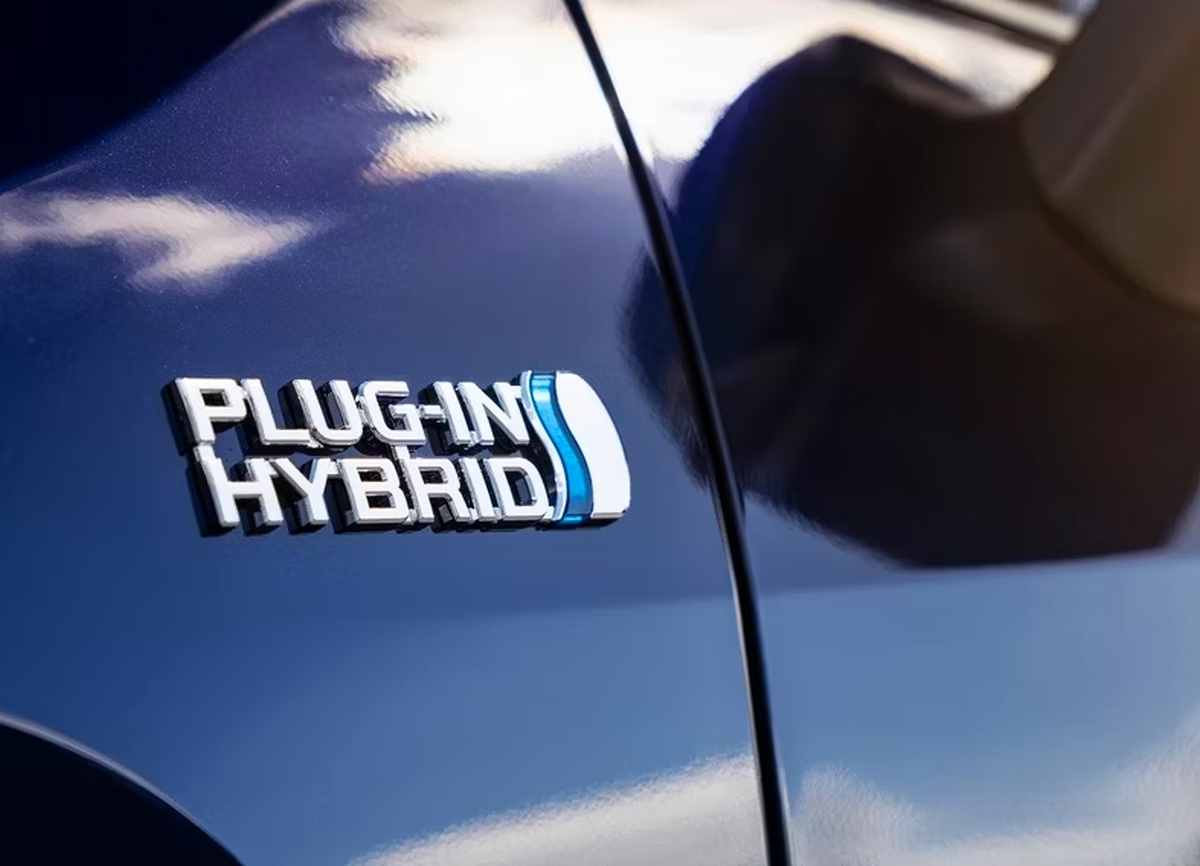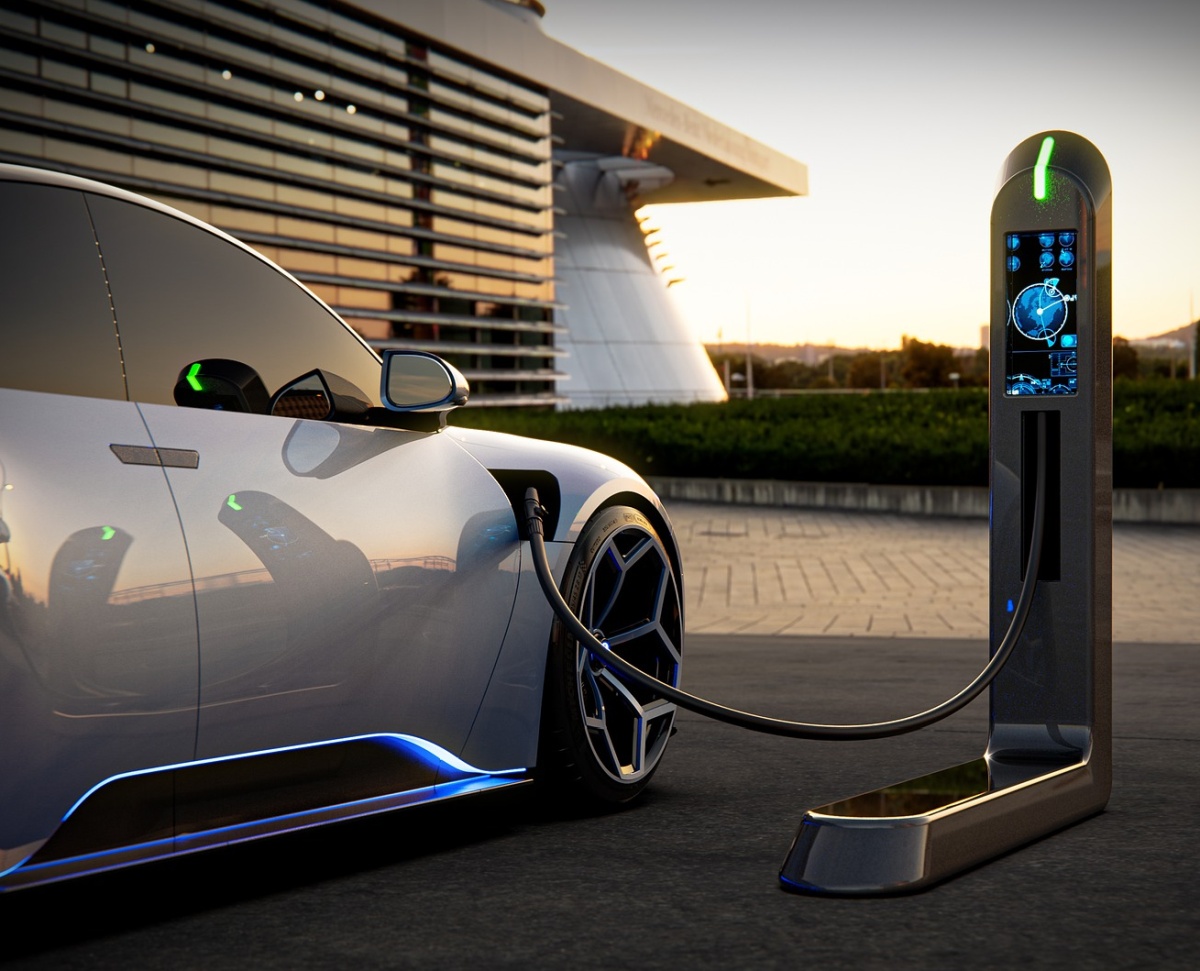Auto manufacturers have focused on launching CNG variants of their popular models to meet consumer demand for vehicles with lower running costs.
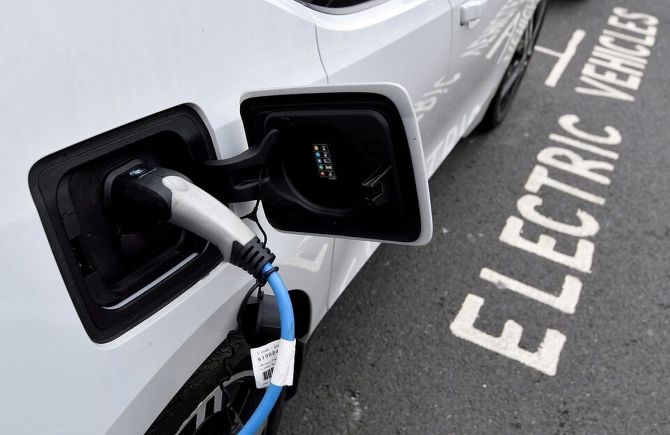
As India's automotive emission regulations become stricter, the share of cleaner fuels and electric vehicles (EVs) is rising sharply.
About a fifth of the total passenger vehicle (PV) sales in India now consist of cleaner fuel or electric options.
The share of battery electric vehicles (BEVs), hybrid EVs, plug-in hybrids, and compressed natural gas (CNG) vehicles touched 19.23 per cent of overall PV sales in 2023-2024, up from a mere 9.29 per cent in FY22, according to data from JATO Dynamics.
In comparison, the share of both petrol and diesel internal combustion engines has declined.
While the share of diesel is down from 18.83 per cent in FY22 to 17.79 per cent in FY24, that of petrol ICE vehicles has fallen to 62.98 per cent in FY24 from 71.88 per cent in FY22.
The share of hybrids has doubled from FY23 (1.06 per cent) to FY24 (2.15 per cent).

Auto original equipment manufacturers (OEMs) have focused on launching CNG variants of their popular models to meet consumer demand for vehicles with lower running costs.
For example, last year several popular models saw their CNG avatars making their debut: Maruti Suzuki Brezza CNG (2023), Tata Punch CNG (2023), Maruti Suzuki Grand Vitara CNG (2023), Tata Altroz CNG (2023).
According to market buzz, CNG variants of the Tata Nexon and the Kia Sonet are also expected.
India's largest passenger carmaker, Maruti Suzuki India, has said that by FY31 it expects that 15 to 20 per cent of cars sold by the company would be EVs, and another 25 per cent could be hybrids, while the rest will use ethanol, CNG, and compressed biogas (CBG).
In an investor presentation in October last year, Marutu had announced it would launch six EVs in the coming years.
'The product mix going forward will include petrol cars, EVs, hybrid cars, cars using CNG, cars equipped with 20 per cent or more ethanol, and possibly cars operating on compressed biogas,' Maruti had said.
'This mixture of technologies is necessary in the context of meeting the carbon footprint targets and taking into account the buying power of customers, infrastructure situation, and the raw materials available in the country for generating clean power,' Maruti had added.
On the other hand, Tata Motors, which leads the EV market with a 73.1 per cent share, draws 13 per cent of its total PV sales from CNG and 16 per cent of its sales from EVs as of Q4FY24.
Together, CNG and EV combined have reached a 29 per cent share in its sales.
The company, which currently sells four EV models, aims to launch six more by March 2026.
Tata Motors expects EV penetration in the Indian car industry to reach 20 per cent by FY30, up from about two per cent in the last financial year.
Within its own portfolio, the company aims to achieve EV penetration of about 30 per cent by FY30.

India's energy efficiency agency, BEE, has set stringent targets to reduce automotive emissions and has stated that battery electric vehicles will be central to its clean mobility strategy.
Moreover, according to the suggested modifications to the corporate average fuel economy (CAFE-III) standards, carmakers have to further reduce their emission footprint.
CAFE III standards will be implemented from 2027 to 2032, as outlined in BEE's latest draft, which is being circulated among industry stakeholders, including OEMs.
CAFE III norms propose carbon emission targets of 91.7 gm CO2 per km and 70 gm CO2 per km for CAFE IV norms based on the World Harmonized Light Vehicles Testing Procedure.
The CAFE norms apply to an OEM's entire vehicle output, limiting carbon emissions from all vehicles sold in a financial year.
Since non-compliance with these limits results in significant penalties, it encourages manufacturers to produce more fuel-efficient and emission-friendly vehicles.
If an OEM's average fuel efficiency exceeds the limit by up to 0.2 litres per 100 km, a penalty of Rs 25,000 per vehicle will be imposed, the proposal has said.
If it exceeds by more than 0.2 litres per 100 km, the penalty rises to Rs 50,000 per vehicle.
An industry insider told Business Standard that discussions are underway with the government on CAFE III norms. "It is not easy to comply with these emission targets because there will be significant price increases as a result, which, in turn, will dampen demand. But one thing is very clear: the long-term trend is towards cleaner fuels, and more so EVs," said the managing director of a leading OEM.
Feature Presentation: Rajesh Alva/Rediff.com


